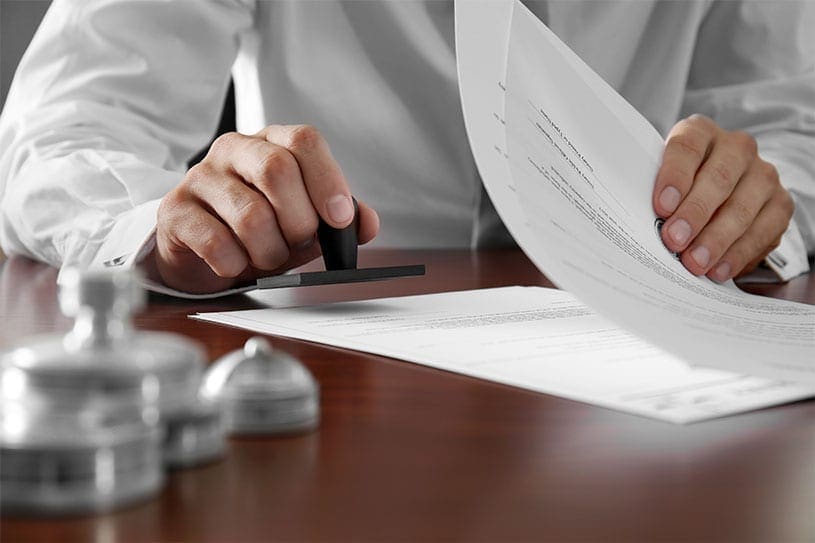If you are reading up on Wills and Estate Planning, it is likely that you have come across the terms Enduring Guardian, and Power of Attorney. Read on to learn about Enduring Guardian vs Enduring Power of Attorney
In Australia, these are both legal documents that allow individuals to appoint someone to make decisions on their behalf in the event they become unable to make decisions for themselves. They generally look after financial and legal affairs.
While they serve similar purposes, there are some important differences between the two. Read on to learn more about the differences between the two in New South Wales.
Enduring Guardian Versus Enduring Power of Attorney
Enduring Guardian:
- An Enduring Guardian is a legal document that appoints someone to make personal, lifestyle, and medical decisions on behalf of an individual who has lost their decision-making capacity due to illness, disability, or other circumstances.
- The appointed guardian can make decisions regarding healthcare, accommodation, and other personal matters as specified in the document.
- The Enduring Guardian document only comes into effect when the person loses the capacity to make their own decisions.
- Each state and territory in Australia has its own legislation governing Enduring Guardianship, so the requirements and processes may vary slightly.
Enduring Power of Attorney
- This is a legal document that appoints someone to make financial and legal decisions on behalf of an individual who has lost their decision-making capacity.
- The appointed attorney can manage financial affairs, pay bills, deal with property matters, and make legal decisions as specified in the document.
- The Enduring Power of Attorney can come into effect immediately upon signing the document or only when the person loses capacity, depending on the individual’s preference.
- Each state and territory in Australia has its own legislation governing Enduring Powers of Attorney, so the requirements and processes may vary.
It’s important to note that the laws regarding Enduring Guardians and Enduring Powers of Attorney may differ slightly between states and territories in Australia.
Each State and Territory has different requirements in relation to Powers of Attorney and Enduring Guardian. For instance, in the Australian Capital Territory (ACT), the Enduring Power of Attorney enables you to designate an attorney who can act on your behalf for financial and medical choices.
However, in NSW, these roles are distinct, where the appointed guardian under the Enduring Guardian is limited to making medical and lifestyle decisions, while the attorney appointed under the Enduring Power of Attorney is limited to making legal and financial decisions
Therefore, it is advisable to consult the specific legislation and seek legal advice to ensure compliance with the relevant requirements in your jurisdiction.

What Is the Role of an Enduring Guardian?
As we have briefly explored above, an Enduring Guardian appoints someone to make important decisions on your behalf. This situation can arise due to a temporary or permanent loss of your ability to make decisions. Illnesses, injuries or disabilities could lead to this. Such circumstances can occur at any stage of your life.
Your appointed Enduring Guardian will only step in to make decisions for you when you become incapable of doing so yourself. In cases where it is uncertain whether your Enduring Guardian should begin making decisions, a doctor or specialist can be consulted.
The role of the Enduring Guardian continues until it is no longer necessary, except in the following scenarios:
- You choose to revoke or cancel the appointment while you possess the mental capacity to do so.
- Your Enduring Guardian voluntarily resigns, passes away, or becomes incapable of fulfilling the role.
- The Guardianship Division of the NSW Civil and Administrative Tribunal (NCAT) or the NSW Supreme Court alters or terminates the appointment.
To assist your Enduring Guardian in making informed decisions, you can provide them with relevant information to guide their actions. For instance, you may direct them to consult with your doctor or medical specialists before making certain decisions.
It is essential to bear in mind that parties must give directions or limitations carefully. This is because they have the potential to restrict flexibility in decision-making.
Decisions that Enduring Guardian Can and Cannot Make
Your designated Enduring Guardian assumes decision-making authority solely within the areas you specify, which may include:
- Determining your place of residence and the services you may receive
- Overseeing your healthcare, medical, and dental treatments
Additionally, they have the ability to:
- Seek additional decision-making authority if the circumstances are more complex or if you require extra support
- Consult on decisions during your end-of-life stage and advance care plans
However, there are certain limitations to their decision-making power. They cannot make decisions regarding:
- Your financial matters
- Your choice of political representation
- Marriage on your behalf
- Anything that is illegal
- Providing consent or refusal for special treatments. For instance, such as those impacting your fertility, terminating a pregnancy, restrictive practices (unless explicitly authorised in the Enduring Guardian document), or experimental treatments that have not been reviewed by medical experts within the industry
- Creating or altering your advance care directive or making changes to your Will.
What Is the Role of a Power of Attorney?
A Power of Attorney can be utilised for a wide range of financial matters, which may include:
- Executing legally binding documents
- Managing bank accounts
- Settling bills
- Engaging in real estate transactions (buying and selling property)
- Handling investment matters
- Collecting rental payments
However, in the state of NSW, an appointed attorney is limited to making financial and legal decisions exclusively.
As we have seen above, on the other hand, if you wish to have someone make decisions regarding your healthcare, lifestyle, and medical affairs, you can appoint an Enduring Guardian. Their role would be specifically focused on those areas.

Seek Advice from Wills and Estate Planning Lawyers
Are you looking to complete these legal documents and appoint an Enduring Guardian and Power of Attorney? If so, it is necessary to get in touch with solicitors. They can help you with all matters in relation to Wills and Estate Planning.
Contact our team of solicitors for more information.
